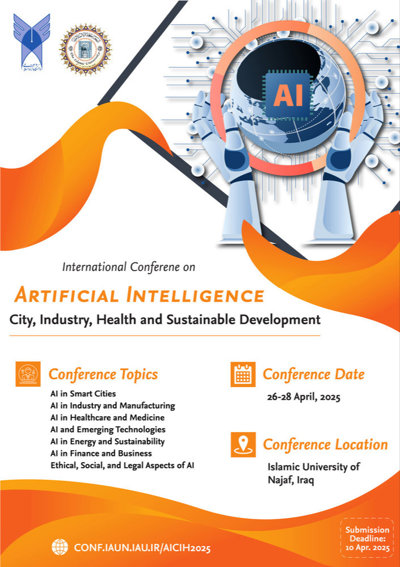0% Complete

نویسندگان :
کلمات کلیدی :
چکیده :
لیست مقالات بایگانی شده
Seid Mohammad Reza Mirahmadi - Naser Khani
Amin Aslanzadeh Moghanjooghi - Mahdi Mazloomi - Mohammad Asgari - Mohammad Sadegh Mehrabikia
مهدی غفاریان
Bahar Assarzadegan - Ali Yousefi
زهرا حسنی - فرشته احمدی
مصطفی مکی شهرضایی - عباس چترائی
Alireza Fereidunian - Mohammadhossein Tamimi - Ehsan ُShahi
Asghar Sabzevari - Majid Moazzami - Bahador Fani - Ghazanfar Shahgholian - Mahnaz Hashemi


